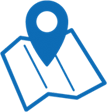
Online Program | 
View Map |
Organizer: André Reichel, ISM International School of Management
Facilitator: Robert Perey, U. of Technology, Sydney
Participant: Bobby Banerjee, City U. London
Participant: John M. Jermier, U. of South Florida
Participant: Fergus Lyon, Middlesex U.
Participant: Martina K. Linnenluecke, Macquarie U.
Participant: Lena Olaison, Copenhagen Business School
Participant: Ana Maria Peredo, U. of Victoria
|
| The Anthropocene describes the impact of humanity on its social ecological system principally its destructive consequences. Among these are climate change and the malaise of a new post- crash global economy ten years after the financial crisis. Current business models of organizations have contributed to the detrimental effects of the Anthropocene throught their focus on the notion of growth: growth of sales, of revenues, of market share, of profit, of consumption. However, in the post-crash economy we find ourselves in a situation where growth is much harder to achieve and sustain, especially when growth should not cause social and ecological harm. This poses a conundrum for business models, strategic thinking, and organizational change: if growth-oriented thinking is at the heart of the global ecological crisis, with climate change moving into unsustainable territory and global ecological footprint exceeding planetary boundaries by 70 percent (Toth & Szigeti, 2016), how can it be overcome for a different kind of Anthropocene economy? Notions of degrowth (Reichel & Perey 2018), sufficiency, target zero, resilience (Linnenluecke 2017) and others will be used as social imaginaries to facilitate business model change. In this PDW, we will thus critically deconstruct and reconstruct existing business and organizational logic from growth to post-growth mindsets. |
| The PDW is interactive at both individual and group levels. It will utilise the World Café technique, with tables in groups of 5/6 to stimulate discussion. Session participants will be distributed amongst the tables and as the PDW progresses, rotate amongst groups. The overarching question that provides an anchorpoint for our discussions in the World Café is: “How do business models beyond growth differ from established business models?” This question will be put into different contexts in three consecutive rounds of World Café talks that allow participants to experience new viewpoints. |
| | |
|
|